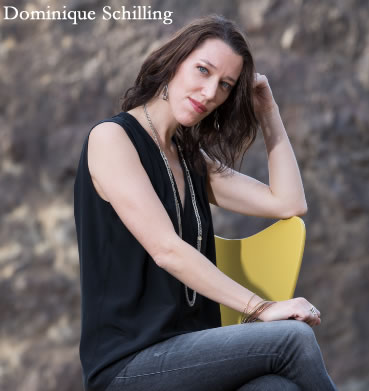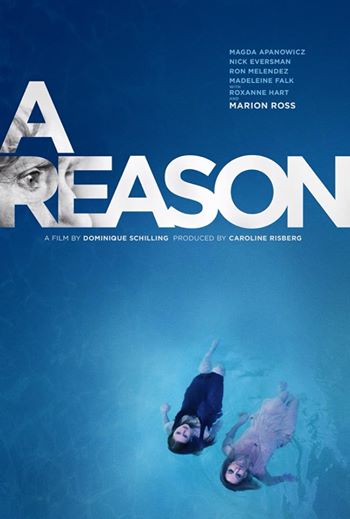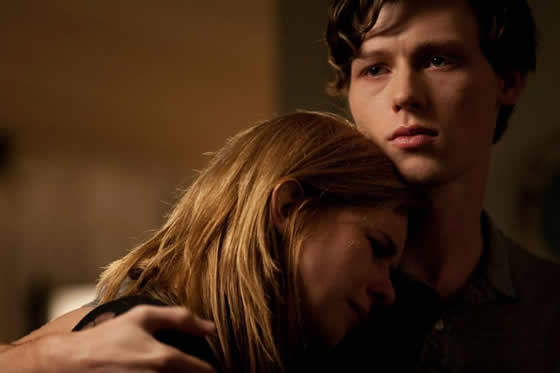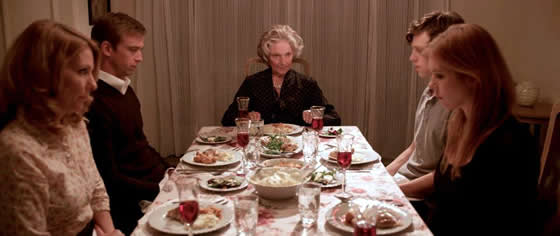 A REASON, directed by Dominique Schilling is about Serena, a young, gay introvert and Nathan, her controlling older brother, that are forced to endure a dreaded family gathering at the house of their elegant elderly Aunt Irene to hear the reading of her will – this sets off an unexpected course of events that ultimately forces the clan to reevaluate their views on love, forgiveness, and family.
A REASON, directed by Dominique Schilling is about Serena, a young, gay introvert and Nathan, her controlling older brother, that are forced to endure a dreaded family gathering at the house of their elegant elderly Aunt Irene to hear the reading of her will – this sets off an unexpected course of events that ultimately forces the clan to reevaluate their views on love, forgiveness, and family.
Bijan: Tehrani: How did you come up with the idea of A REASON?
Dominique Schilling: A friend of mine told me about a villa in the Pacific Palisades that was going to be torn down and that would present itself as a great shooting location. When I walked through the house I took photos and later on referenced them while writing the script. An elderly couple had lived there, so the décor was very old fashioned. That’s how the character of Aunt Irene was born. Everything in the house looked shiny at first glance, but when you looked closely it was decaying. I integrated that concept into the story of a seemingly perfect family that is actually slowly falling apart.
BT: A REASON is a drama with sophisticated characters going through very complicated relationships and you have managed to pass all this in a clear way to your audience, how challenging was this?
DS: It usually is challenging, but it wasn’t with A Reason. The characters just kind of came to me and I “felt” them deeply. The relationships are complicated, that’s true, but the better you know your characters, the easier it is to know how they react and how they feel about each other. For a writer, it’s almost like splitting oneself into little separate pieces and becoming and feeling all these different people and staying true to them while writing.
BT: Did you had a personal experience in life or did you know real people like characters in your film?
DS: I feel like some of the characters reflect a side of me during different periods of my life. Some are similar to people that I have known very well, like Nathan’s character. They had the same manipulative personality and abusive behavioral patterns. Some scenes in the film come close to my own experiences, but don’t necessarily reflect them. Others are pure fiction.
BT: Casting in psychological dramas like A REASON is very important and crucial, how did you go about casting your film?
DS: Our casting director, Michael Sanford, understood my vision to a T, which really helped. He had wonderful casting ideas. For me, casting is similar to the writing process. The better you know your characters the quicker you know who the right choices are for the parts. The dynamic between the actors was crucial, because we had to cast a believable family. I’m very pleased with the final cast.
BT: How was your experience working with Marion Ross? She has an amazing performance in A REASON. DS: Marion Ross is an amazing actress. The better your actors, the easier it is to work with them. She understood the character of Aunt Irene perfectly and brought so many colors and so much life to it. I was very touched by her. She is a wonderful human being. It was a great experience.
DS: Marion Ross is an amazing actress. The better your actors, the easier it is to work with them. She understood the character of Aunt Irene perfectly and brought so many colors and so much life to it. I was very touched by her. She is a wonderful human being. It was a great experience.
BT: How did you work with your actors, did you had a lot of rehearsal sessions, or you just worked everything on the set?
DS: We had no rehearsals at all. I called every actor before the shoot to discuss their character. Then on set, the blocking was the rehearsal. We had an extremely tight production schedule. I had to be very efficient in my directions. It was helpful that almost all cast members had been either series leads or regulars on TV shows, so they were used to that type of time crunch. Everyone did a wonderful job.
BT: Creating realistic and believable situation like in A REASON is a difficult task, did you allow any improvisation?
DS: No. I was very picky with the lines and wanted everything exactly as it was in the script. I did let the actors know that if changing specific lines would feel more natural to them it would be fine to make adjustments as long as they discussed it with me first. I think in the end we changed 2 words in the entire script. Everything else was exactly how I wrote it.
BT: Please tell us about the visual style of your film.
DS: The film is shot in two different background colors. The first half, when everyone is still trying to keep their perfect image, is shot in dreamy amber tones, giving it an old-school movie feel. The other half, which happens after a breaking point in the film and the  characters start to show their real faces and stop pretending to like each other, is shot in cool blue hues, giving it a gritty European realistic feel. The camera movements had a theme as well. During the first half, many of Aunt Irene’s shots are static and the family’s shots are moving. As the story progresses, I turn that concept around and the camera is static on the family and moving on Aunt Irene. It let’s the audience feel that Aunt Irene’s is losing control. Every such effect needs to be subtle enough to be unsettling, but can’t be obvious. Cinematographer Matthias Schubert and I had great communication and he really understood my vision. It worked nicely.
characters start to show their real faces and stop pretending to like each other, is shot in cool blue hues, giving it a gritty European realistic feel. The camera movements had a theme as well. During the first half, many of Aunt Irene’s shots are static and the family’s shots are moving. As the story progresses, I turn that concept around and the camera is static on the family and moving on Aunt Irene. It let’s the audience feel that Aunt Irene’s is losing control. Every such effect needs to be subtle enough to be unsettling, but can’t be obvious. Cinematographer Matthias Schubert and I had great communication and he really understood my vision. It worked nicely.
BT: What is your next project?
DS: The next film is called “Little Girl, Big Eyes”. Caroline Risberg from Risberg Schilling Productions is producing again. She also produced “A Reason”. It’s the story of a chaotic woman named Joe, who meets a foster child, a little girl who’s being sent back by the courts to her abusive father. Joe decides to take matters into her own hands to protect her. The idea is: If you could rescue a child, but you would have to break the law to do it, would you do it? I like moral dilemmas and we’re all very excited about this next movie.

